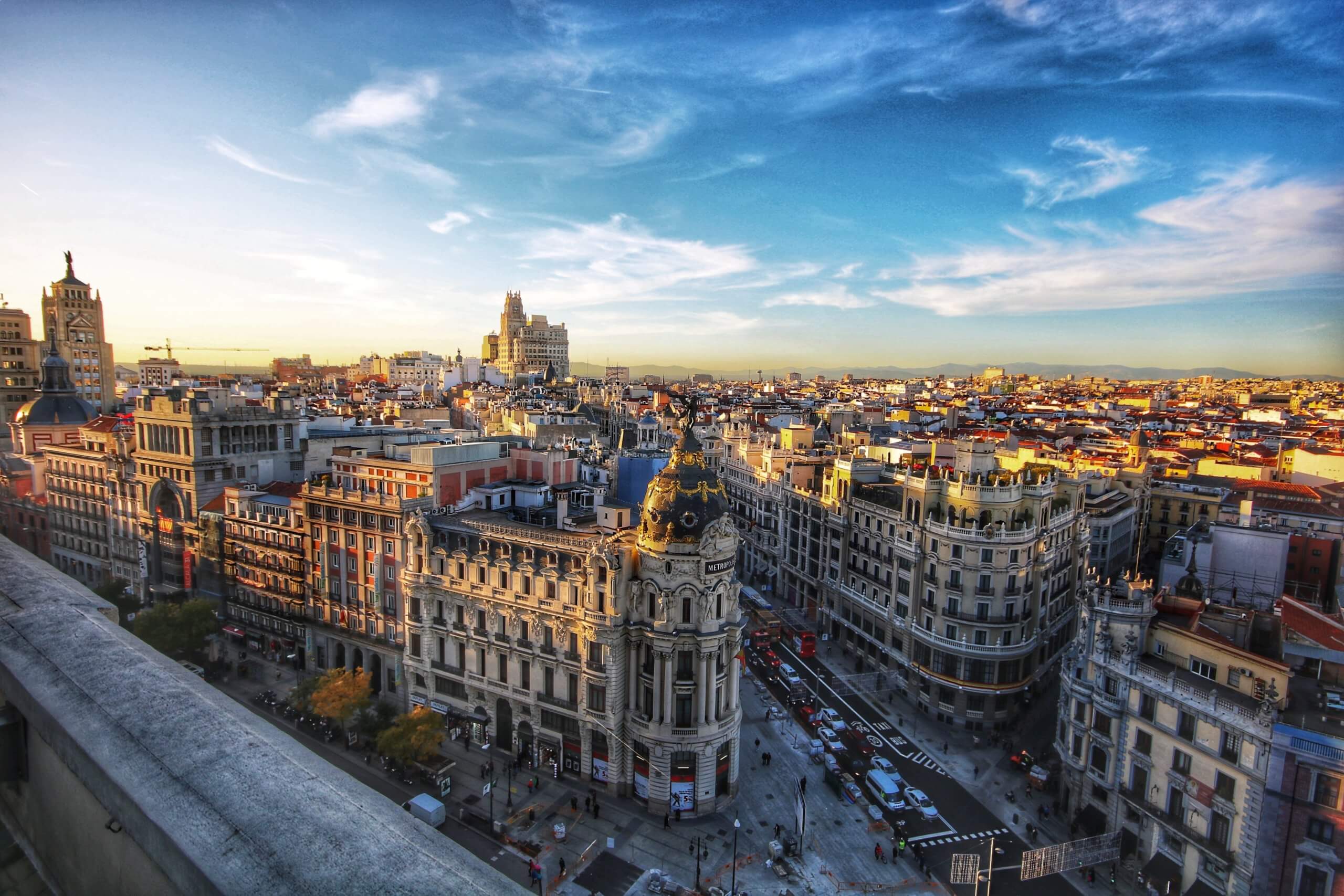- Guides
Our Top 10 Tips to Finding Friends Abroad
Let’s face it, moving abroad, where everything is unfamiliar, can feel like a bit of a maze. You’re struggling with...
Read moreGuides
Lisbon has emerged as one of the trendiest capitals in Europe. Many entrepreneurs and international companies have relocated parts of their operations here after the economic crisis, and it is easy to understand why. The city boasts more than 250 days of sunshine a year and is close to a stunning coastline of beautiful beaches and natural scenery. All this, together with the affordable cost of living and its laidback lifestyle and vibrant streets, makes Lisbon a city worth discovering!
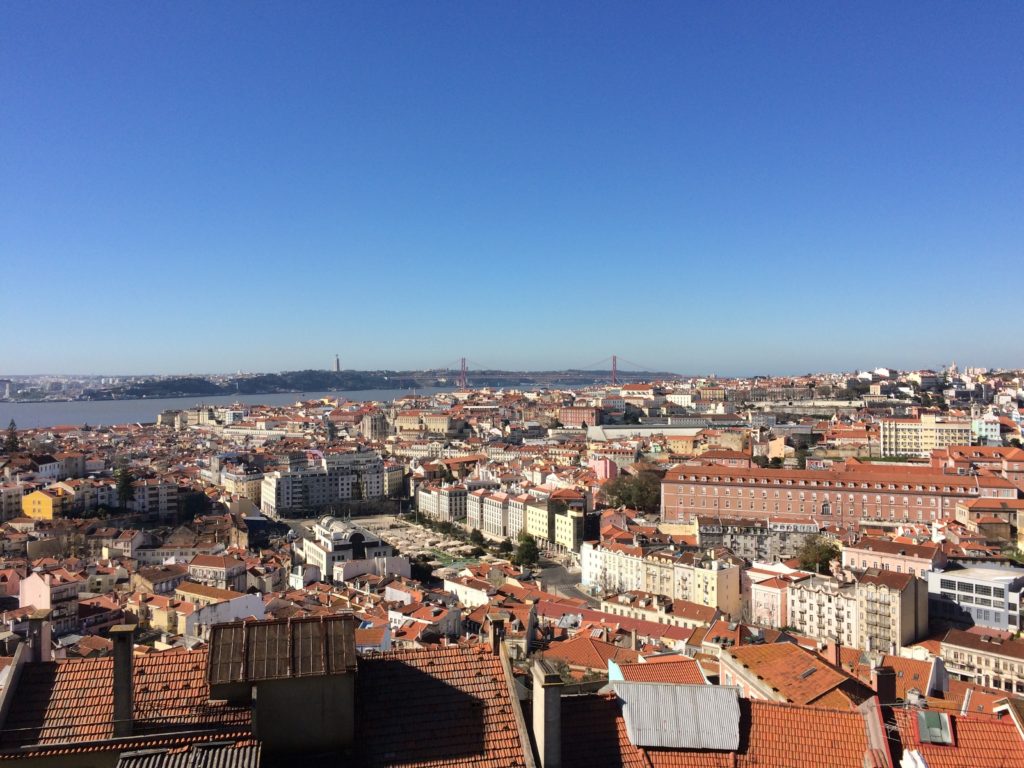
Basic info about Lisbon
Weather: mild subtropical climate – warm to hot, dry summers and mild winters
Population: The metro area population of Lisbon in 2020 was around 3 million
History: Lisbon is one of the oldest cities in Western Europe. About 3,000 years ago, the Phoenicians settled in Lisbon, which was then called Alis Ubbo (Delightful Shore)
Did you know?
Lisbon has become one of the top destinations in Europe for tourists and is becoming more and more popular among expats. It’s one of the most densely populated cities in Europe. Settling down in the city is not an easy task, as many owners find it more interesting to rent out their apartments through Airbnb, leading to a shortage of housing. For this reason, finding an apartment in the long term needs to be planned. A place to start doing so are Facebook groups like “Lisbon Apartments/Rooms/Houses for Rent/Sale” and “Apartments and rooms in Lisbon - flat-sharing” or longtermlettings.com and sublet.com, sites where you can find a room in a shared flat or short-term accommodation. Of course, you can also contact real estate agencies, such as ImmoStreet. In general, the ads clearly state what type of apartment you’re looking at and how many rooms it has. T0 is a studio flat, T1 – one-bedroom, T2 – two bedrooms, and so on. Rooms to rent are marked in English or Portuguese – quarto para alugar.
Some popular areas among youth or expats are Avenida Almirante Reis, between Bairro Alto and Castelo São Jorge, Baixa district, Amoreiras, Benfica, and Penha de França, not so far from the city center. Many people decide to stay outside the city centre, as doing your daily shopping can be a bit harder, and this area can be really hilly.
We recommend that you always go and check the apartment or room before signing a contract. And never pay anything in advance! The price level for renting apartments in Lisbon is generally lower than in other large cities in Europe. For example, the rental price for sharing an apartment starts at 250 euros. However, if you want to live by yourself, a two-bedroom apartment can cost an average of 600 euros a month in the areas mentioned previously. Keep in mind that the rent does not usually include any bills, and you have to pay them separately. Moreover, as the rental often involves a deposit equivalent to 2 or 3 months, you might as well include this amount in your budget to avoid being surprised.
Anyway, remember that several companies offer to arrange housing for you as part of the employment contract. We recommend that you take this opportunity, as it will ensure that you have a place to stay when you arrive for your first day of work in Lisbon. Subsequently, you will have more time to find a place that suits you better!

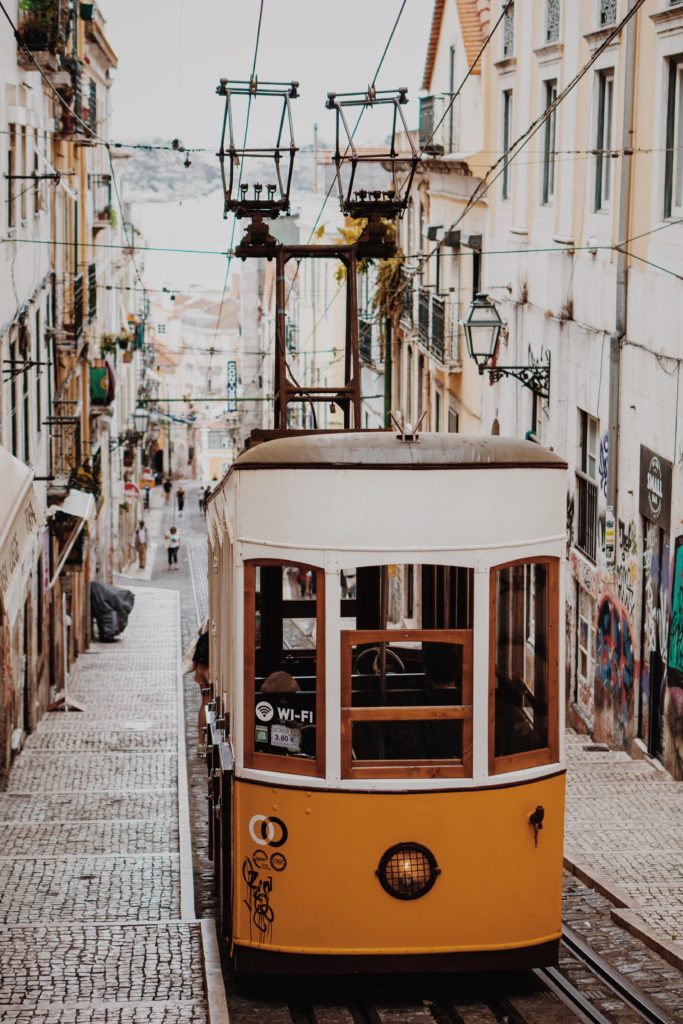
The favourable climate in Lisbon allows you to spend time outdoors all year round. This means that you can cultivate interests such as surfing or sailing at the beach in Estoril or Cascais, 30 minutes away by train, or hiking at Monsanto Forest Park, where you can get a spectacular panoramic view of the city. For another viewpoint over Lisbon, take the ferry to Cacilhas district, on the other side of the Tagus river, or take a cruise through the same river to see Lisbon from a different perspective.
Lisbon is a small city with a large cultural offer. Festivals and events happen all the time, but there is also a strong café and restaurant culture. For example, the Pastéis de Belém bakery is a mandatory stop for newcomers. Opened in 1834, they are specialists in baking the world-famous pastéis de Belén - warm, creamy tarts with puff pastry made according to a secret recipe. If you are into food experiences, we recommend going to the Time Out Market Lisboa, with more than 40 spaces where you can taste the different flavours of the city. And, if you have some energy left after dinner, really close to this market, you can find Pink Street, the place to go if you want to experience Lisbon’s nightlife together with Bairro Alto.
On the other side of the city centre, in Alfama, you can breathe Lisbon’s past. The neighbourhood survived the 1775 earthquake and is, therefore, the oldest area of the city. Walk through the alleyways and the narrow streets and visit the Castelo de São Jorge, on top of the hill with views over the Baixa district and the Tagus river. The towers, the gardens, and the lookouts take you back to medieval times.
If you enjoy pottering around flea markets, you can go to Feira da Ladra. There’s a bit of everything there, from socks and vintage clothes to second-hand books. Furthermore, The Mercado de Alvalade Norte is a daily farmer market where you can buy food directly from the local producers, especially fish and freshly-made bread.
Football is the national sport in Portugal, so a visit to the Luz Stadium, home to the Benfica Football Club and home of legendary football players, is a must. The stadium also has a museum where you can learn more about the club and Eusebio, the most famous Portuguese football player.
Lisbon is known for its many historical buildings, monuments, and churches. Walking around in Lisbon almost feels like you’re walking through a history book!
For example, you can choose to visit the Lisbon Cathedral: the most important Roman Catholic cathedral in the city. The first version of this cathedral was ready in the early 13th century, and since then, new sections have been built, and some others have been remodelled and restored. There is no entry fee, and the cathedral is open every day.
In Lisbon’s most historic areas there are a few things you can’t miss. For example, The Jerónimos Monastery (Mosteiro dos Jerónimos), where Vasco da Gama spent his last night before his trip to Asia. Or the Belém Tower (Torre de Belém), a fortified tower from the 16th century and one of the most iconic monuments, built to defend the city.
Whenever you feel more like relaxing, you can visit Café Martinho de Arcada. This café is one of the oldest in Lisbon and is well-known because the Portuguese writer Fernando Pessoa frequently visited it. Enjoy a beverage on the outdoor terrace or try a delicious Portuguese dish.
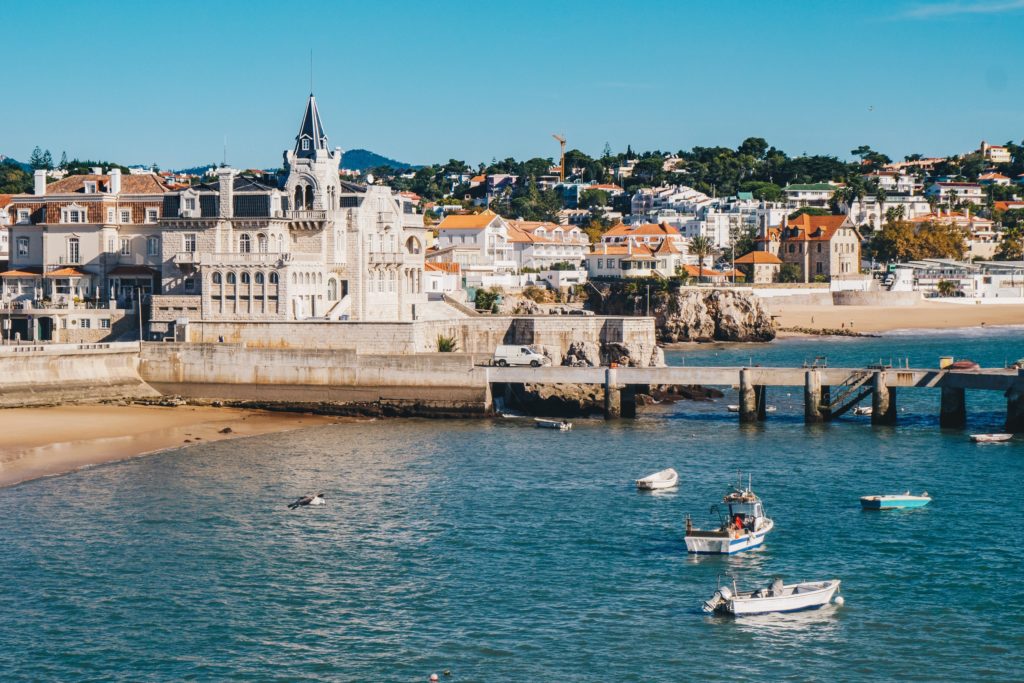
A fun way to meet locals in Lisbon is to visit the most popular places in the city. Many locals hang out there as well, and it’s the perfect way to socialize with local people. For example, it’s always a good idea to go to Largo do Intendente as there are plenty of bars and restaurants. In particular, Independente is a popular place with digital nomads and students. Nightlife is also charming at the venue, as it always hosts several up-and-coming bands.
Another tip is to visit Park Bar, especially during the winter and spring seasons. Many locals like to plan their evenings/nights out in this popular bar with excellent views towards the Tagus River.
An effective way to meet other expats in Lisbon is to enrol in a Portuguese language course. This way you will meet new people who also want to make new friends, just like you. There are many Portuguese language classes held in different schools in Lisbon, so you will not have a problem finding one.
You can also join an expat meetup in Lisbon. There are a lot of meetups being held, like “You are not alone: Support group for expats in Lisbon”, “New friends Lisbon”, and “Expat beer lovers in Lisbon”. To find these groups, you only need to register at meetup.com and join a group or create your public event. Another option always available is to become a member of expat groups on Facebook. Try, for example, "Expats in Lisbon" or "Lisbon Expats & Locals"
Portugal has one of the lowest cost of living in Western Europe. Almost everything, from accommodation to groceries, is affordable and a lot cheaper than in most other countries in Europe. Eating out at a restaurant doesn’t have to be expensive either. The Portuguese “prato do dia” (the lunch of the day) generally costs around € 8 to € 11 per person and includes a complete meal, including drinks. A cappuccino on a terrace in Lisbon will cost you around €1.63, and you can drink an imported beer for around €3.
Moreover, the minimum salary in Portugal is around €750 (which means you can’t get paid less than this amount if you work full time), and the average salary in Lisbon is €1,000 a month, but as an expat you can expect even more.
| Lisbon | |
| Groceries | |
| 1 kg oranges | €1.20 |
| 12 eggs 1 kg potatoes | €1.86 €0.96 |
| Restaurant/cafe | |
| Imported beer (0,5 l) | €3 |
| Meal for 2 at restaurant | €35 |
| Cappuccino | €1.63 |
| Sports / Leisure | |
| Gym membership | €33/month |
| Cinema ticket | €7 |
| Public transport | |
| Single ticket bus | €1.60 |
| Taxi (normal tariff) | €5 |
| Average salary | €1,000-1,300 |
When you arrive in Lisbon, you will notice that Lisbon has five main public transportations: bus, tram, metro, train, and the ferries across the river. The metro is the quickest way to travel to some areas, and there are four lines in total. Lisbon's trams cover many areas of the city where there is no access to the metro.
Moreover, Lisbon has an extensive network of buses as well: it covers the entire city. A single bus ticket in Lisbon costs around €1.60. You can take a taxi as well. A taxi ride around the city is cheap compared to other countries and cities, and it will cost you roughly 5 euros.
It is recommended to buy a Viagem Card as soon as you arrive in Lisbon. This card is a quick and easy payment method for journeys on public transport in Lisbon. You can use this card to travel on the metro, bus, tram, funicular, ferry, and suburban train. Travelling with a Viagem Card is cheaper than buying a ticket on board.
If you are going to live and work in Lisbon, you might consider learning the Portuguese language. Although it may be tempting to communicate in English, learning the local language is valuable when you travel in Portugal on your days off or when you want to meet the locals. Moreover, the English level in the country is not as high as in other areas in Europe. The best language schools in Lisbon are Portuguese Connection, Center of Languages, Lusa Language School, and Speak. Enrolling in a language course is often an immersive cultural program in an international community, so it’s the perfect occasion to meet people and know your new country! Here you have some basic vocabulary to start with:
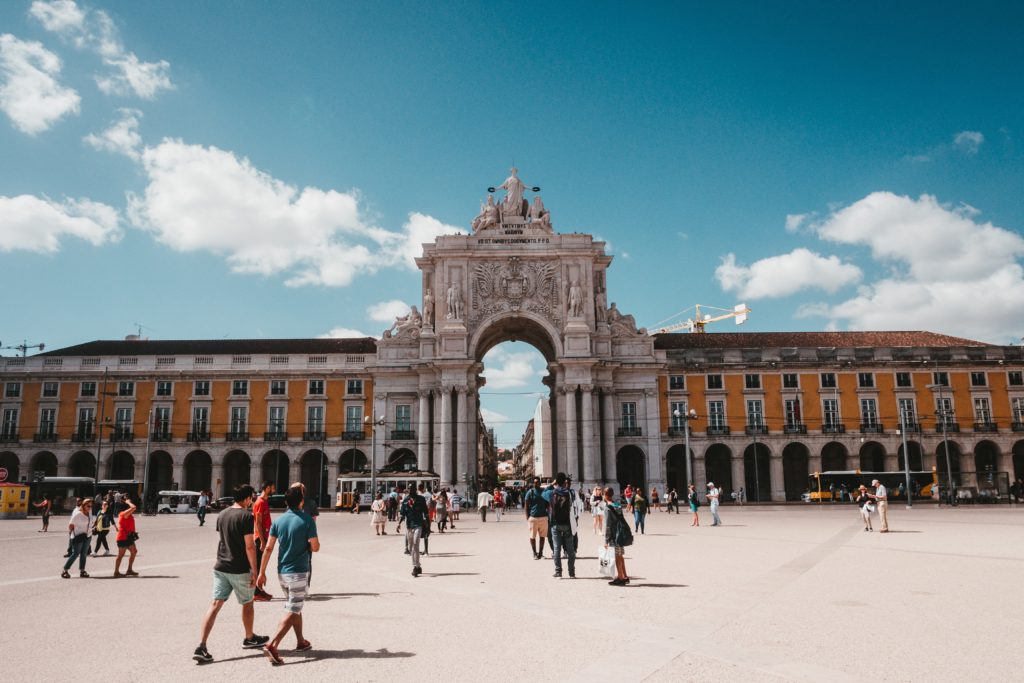
Young people don’t just go to the City of Seven Hills for holidays. They move here to work and enjoy life to the fullest. Lisbon has shortages of unskilled and educated employees in growing industries such as IT, health, tourism, agriculture, and communication. All sectors have grown tremendously in the last years, providing opportunities for people that want to live and work in Lisbon. Due to its strategic location, many CEOs have chosen Portugal to establish their companies and connect their businesses worldwide.
Cisco Systems, BNP Paribas, EUROPCAR, Fujitsu, Xerox, and IBM are some of the 450 companies based in Portugal that provide excellent services in the finance, human resources, IT, and logistic sectors. These companies are often looking for motivated bilingual or multilingual employees. In summary, if you like challenges and working in an environment that is in a continuous change and want to get to know new cultures and customs from people from all over the world, then the boundless world of SSCs and BPOs in Lisbon is the ideal place for you!
Lisbon has the best job market in Portugal, and the economic situation has improved tremendously in the last few years. Local newspapers (Correio da Manhã, Diário de notícias and Publico), personal contacts, temporary employment agencies, and, of course, Workwide Recruit are the main ways to find a job in this city. International companies in, for example, IT and BPOs will need your CV and your cover letter in English. Just as you are used to, the application should highlight your skills and show why you are a good choice for the job.
The workplace in Portugal is traditionally more hierarchical than in Scandinavia or central Europe, and personal meetings are valued more than conference calls and emails. If you work for an international company, you will not notice this in the same way, but a Portuguese work culture still values that you are polite, friendly and treat colleagues with respect. The dress code is also a little more elegant if you work in an office. When meeting work colleagues for the first time, stay reserved and formal. A firm handshake with eye contact is appropriate. As you become acquainted, greetings will become more informal.
Long lunches are part of the typical working day. But it's essential to distinguish between social and business situations – as, in a social context, Portuguese people are not used to discussing business matters unless the host raises the subject. When it comes to deadlines, people have adopted a more or less relaxed attitude. Although punctuality does not seem to matter much in a social context, the Portuguese seem to expect people to be punctual at work.


As an employee, you have the same rights as a Portuguese citizen regarding payment and working conditions. The maximum legal working week in Portugal is 40 hours, and you are entitled to a minimum of 22 annual leave days. Moreover, there are 12 mandatory public holidays and two optional public holidays in Portugal. The notice period for an employment contract depends on how long you have worked in the company.
The gross minimum wage for 2021 has been set at around €750. As an expat, you will usually earn more, with an average of about €1,620 per month. This may seem less than what you are used to, but don’t forget the low cost of living.
There are several sites online where you can find information on everything that happens in Lisbon. Eventbrite or InterNations Lisbon arrange or suggest meetings for you who work or are new to the city. You will find everything from "Coaching Breakfast" to "train your brain" and also groups for you who want to meet at a café or bar to discuss business trends and opportunities.
Since Portugal is part of the European Union, it’s not difficult for EU citizens to relocate here. However, there are some guidelines that you have to follow according to Portuguese immigration policy. If you want to work in Portugal as an EU citizen, you need to apply for the tax identification number called NIF (Número de Identificação Fiscal). You can do so at different places:
The document requirements for a NIF number are small. You only need to present a valid photo ID, proof of your address (e.g., utility bill), and an employment contract. Your NIF number is necessary for different things, such as opening a bank account, setting up utilities, buying a car or applying for a driving license, paying taxes, etc...
After this, you need a CRUE (Certificate of Residency) certificate that you get at City Hall (Câmara Municipal). To get it, you need to bring your passport and employment contract with your NIF number.

Once you have arranged the NIF number and CRUE certificate, it is time to open a bank account to receive your salary. You will be able to complete the process in just one visit. Bank cards are usually sent to your registered address within a few days. The required documents vary from bank to bank, and some accounts may have different requirements, especially if you want access to credit facilities.
To open a bank account in Lisbon, you will usually need to bring the following documents:
The most popular Portuguese banks for expats are Caixa Geral de Depósitos (CGD), Banco Santander Portugal, Banco Comercial Portugues (BCP), and Novo Banco. You can also ask for advice from other expats or your colleagues to find the bank that fits your needs better.
Primary health care is provided by the Serviçio Nacional de Saude (SNS), which is tax-funded and organized by the Department of Health. The SNS ensures that all the residents in Portugal have access to health care, as is enshrined in the constitution. For visits to the doctor and hospital stays, adults usually only pay a small deductible, while this is no longer applicable for children and chronically ill people.
If you are working in Portugal, your employer should automatically enrol you and arrange payments into the social security system in the country, after which you can get health insurance. This means you will get the personal social insurance number (NISS) from the Social Insurance Office (Segurança Social). Doctors use the NISS to prescribe medication, check your medical history, and manage your sick leaves, maternity and paternity leaves, etc.…
Once you’re registered, you will need to go to a "Centro de Saúde" (outpatients clinic) with your passport and NISS and sign up. They will then send you your healthcare card (cartão do utente), which you should carry at all times and allows you to receive discounted healthcare.
For certain occupational groups, there are also additional social insurances. It is also possible to get private insurance for a certain fee in Portugal, like in other countries in Europe.
Like nationals, expats from the EU benefit from Portuguese social protection, regardless of the type of employment contract. You must pay personal income tax on your earnings, and this is deducted through your payslip. The tax system in Portugal is more lenient than in other countries in Europe, and the higher the income, the higher the tax deducted. The tax rate is 14.5% for the lowest income level and 48% (+ 2.5%) for the highest income level:
| Annual taxable income | Portugal income tax rate |
| up to €7,112 | 14.5% |
| €7,113–€10,732 | 23% |
| €10,733–€20,322 | 28.5% |
| €20,323–€25,075 | 35% |
| €25,076–€39,967 | 37% |
| €39,968–€80,882 | 45% |
| €80,883+ | 48% |

Living and working in Lisbon will be a fun and rewarding experience. The mild and warm climate entices many expats to try out the adventure of living in this city. Once the working day is over, you can enjoy the lovely weather at a café with friends or take a dip in the sea. But most importantly, a stay abroad in Lisbon will benefit your future career opportunities! Start your adventure in the Portuguese capital by applying for a job with Workwide Recruit today!
Let’s face it, moving abroad, where everything is unfamiliar, can feel like a bit of a maze. You’re struggling with...
Read moreWelcome to the beating heart of Spain – Madrid! This bustling metropolis offers a unique blend of rich culture, historical...
Read more
